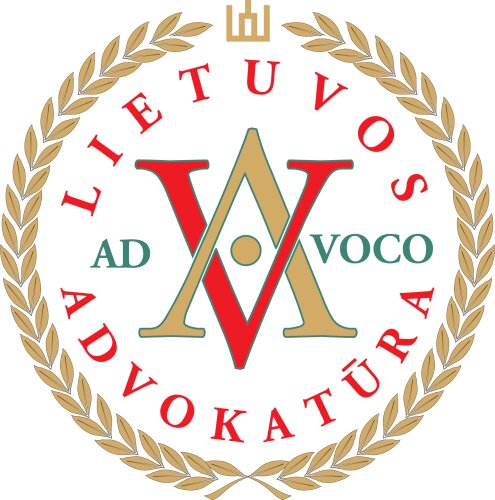Best ADR Mediation & Arbitration Lawyers in Republic of Lithuania
Share your needs with us, get contacted by law firms.
Free. Takes 2 min.
Or refine your search by selecting a city:
List of the best lawyers in Republic of Lithuania
About ADR Mediation & Arbitration Law in Republic of Lithuania:
Alternative Dispute Resolution (ADR) is a method of resolving disputes outside of the court system. In the Republic of Lithuania, ADR methods such as mediation and arbitration are becoming increasingly popular for resolving various types of conflicts, including commercial disputes, family matters, and labor disputes. ADR offers parties more control over the outcome of their dispute, as well as a quicker and more cost-effective resolution compared to traditional litigation.
Why You May Need a Lawyer:
You may need a lawyer in ADR Mediation & Arbitration in the Republic of Lithuania if you are facing a complex legal issue, are unsure of your rights and obligations, or need assistance negotiating a settlement agreement. A lawyer can help guide you through the ADR process, explain your legal options, and advocate on your behalf during mediation or arbitration proceedings.
Local Laws Overview:
In Lithuania, ADR is regulated by the Law on Mediation and the Law on Commercial Arbitration. These laws set out the procedures for conducting mediation and arbitration proceedings, as well as the qualifications required for mediators and arbitrators. It is important to familiarize yourself with these laws before embarking on ADR to ensure that your rights are protected and that the process is conducted fairly and efficiently.
Frequently Asked Questions:
1. What is the difference between mediation and arbitration?
Mediation is a voluntary process where parties work with a neutral mediator to reach a mutually acceptable agreement. Arbitration is a more formal process where a neutral arbitrator renders a binding decision on the dispute.
2. How long does ADR typically take in Lithuania?
The length of ADR proceedings in Lithuania can vary depending on the complexity of the dispute and the willingness of the parties to cooperate. Mediation is generally a quicker process compared to arbitration, which can take several months to complete.
3. Can I be forced to participate in ADR in Lithuania?
In some cases, parties may be required to participate in ADR as a condition of a contract or by court order. However, participation in ADR is typically voluntary, and parties must agree to engage in the process.
4. How much does ADR cost in Lithuania?
The cost of ADR in Lithuania can vary depending on the complexity of the dispute, the fees charged by the mediator or arbitrator, and any other expenses related to the proceedings. It is important to discuss fees and costs upfront with your ADR provider.
5. Are ADR decisions binding in Lithuania?
Arbitration decisions are generally binding on the parties and can be enforced in court. Mediation agreements can also be legally binding if the parties choose to formalize their agreement in writing.
6. Can I have a lawyer represent me in ADR proceedings in Lithuania?
Yes, parties are allowed to have legal representation in ADR proceedings in Lithuania. Your lawyer can help you understand your rights, prepare your case, and advocate on your behalf during mediation or arbitration.
7. How do I choose a mediator or arbitrator in Lithuania?
When selecting a mediator or arbitrator in Lithuania, it is important to consider their qualifications, experience, and reputation in the field. You may also want to consider their fees and availability before making your decision.
8. Can I appeal an ADR decision in Lithuania?
In arbitration, the decision of the arbitrator is final and binding, and there is generally limited recourse for appeal. However, in certain cases, you may be able to challenge an arbitration award in court on limited grounds.
9. Are ADR proceedings confidential in Lithuania?
Mediation and arbitration proceedings in Lithuania are typically confidential, meaning that discussions and documents exchanged during the process are not disclosed to third parties. This confidentiality can help encourage open and honest communication between the parties.
10. How do I enforce an ADR decision in Lithuania?
If you have obtained a favorable decision in arbitration, you can enforce the award through the courts in Lithuania. The court will review the award and, if satisfied, will issue an enforcement order to ensure that the decision is carried out.
Additional Resources:
For more information on ADR Mediation & Arbitration in the Republic of Lithuania, you can visit the Lithuanian Chamber of Commerce, the Ministry of Justice of the Republic of Lithuania, or consult with a local legal professional specializing in ADR.
Next Steps:
If you require legal assistance in ADR Mediation & Arbitration in the Republic of Lithuania, it is recommended to seek advice from a qualified lawyer who is experienced in ADR proceedings. Your lawyer can help you navigate the process, protect your rights, and work towards a successful resolution of your dispute.
Lawzana helps you find the best lawyers and law firms in Republic of Lithuania through a curated and pre-screened list of qualified legal professionals. Our platform offers rankings and detailed profiles of attorneys and law firms, allowing you to compare based on practice areas, including ADR Mediation & Arbitration , experience, and client feedback.
Each profile includes a description of the firm's areas of practice, client reviews, team members and partners, year of establishment, spoken languages, office locations, contact information, social media presence, and any published articles or resources. Most firms on our platform speak English and are experienced in both local and international legal matters.
Get a quote from top-rated law firms in Republic of Lithuania — quickly, securely, and without unnecessary hassle.
Disclaimer:
The information provided on this page is for general informational purposes only and does not constitute legal advice. While we strive to ensure the accuracy and relevance of the content, legal information may change over time, and interpretations of the law can vary. You should always consult with a qualified legal professional for advice specific to your situation.
We disclaim all liability for actions taken or not taken based on the content of this page. If you believe any information is incorrect or outdated, please contact us, and we will review and update it where appropriate.
Browse adr mediation & arbitration law firms by city in Republic of Lithuania
Refine your search by selecting a city.

















